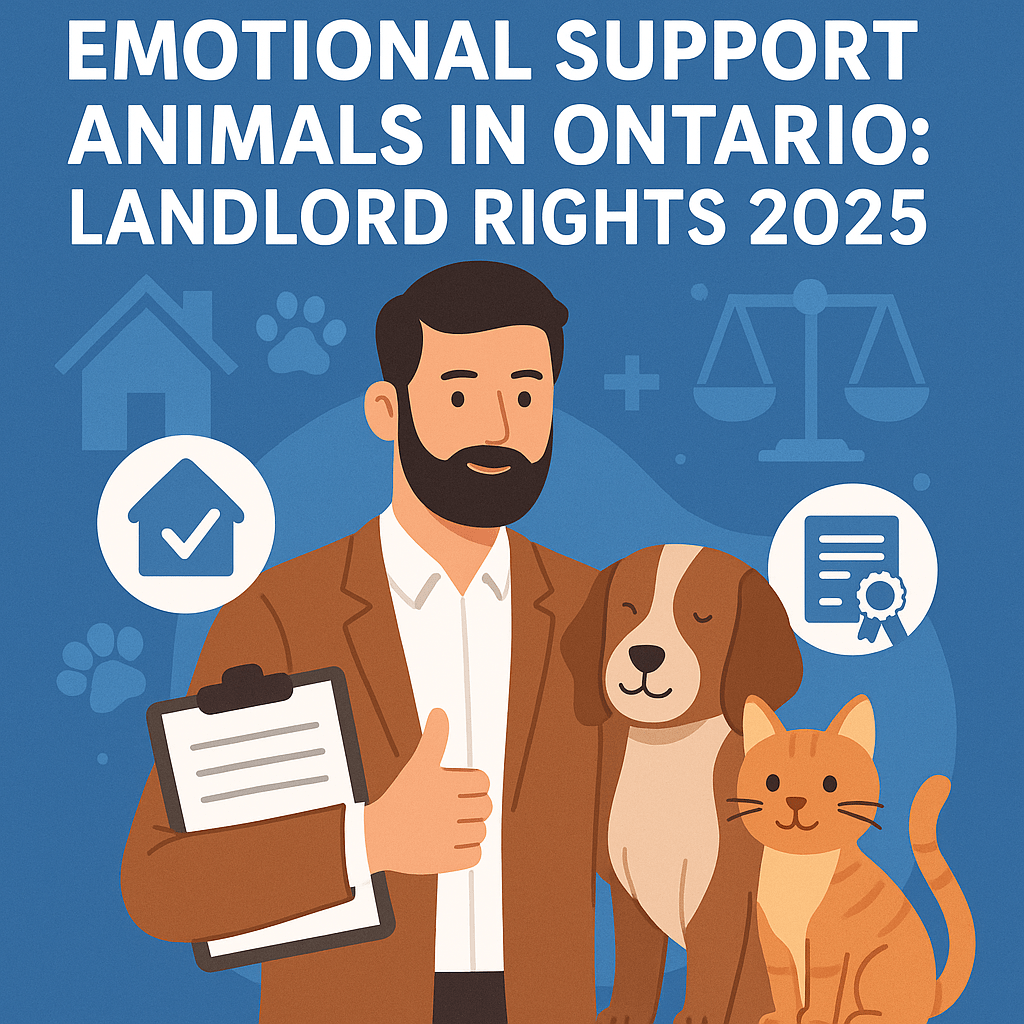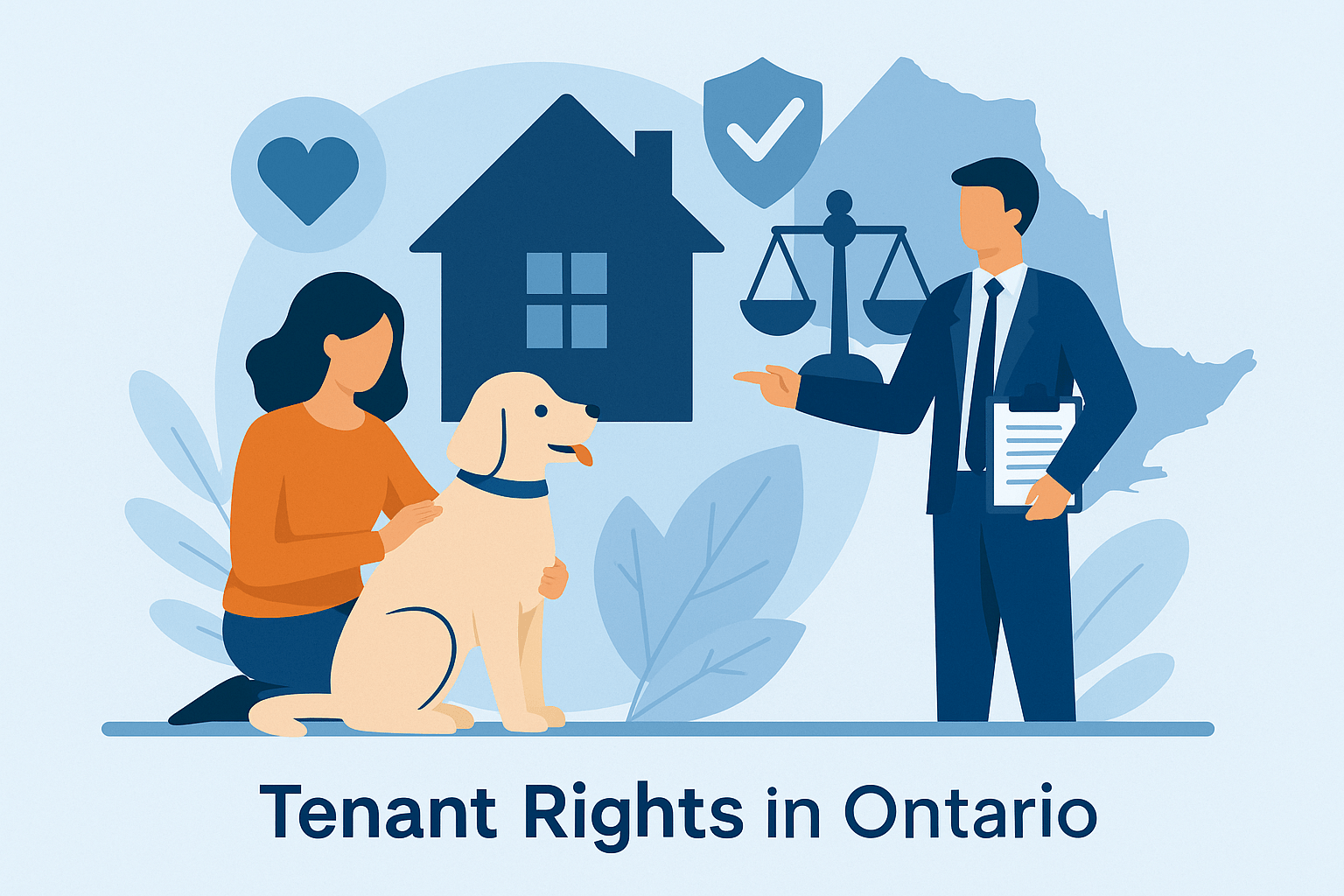
In This Article:
- What Is an Emotional Support Animal?
- Landlord Responsibilities Under Ontario Law
- Can You Say "No Pets Allowed"?
- Handling Conflicts and Liability
- Tips for Landlords Navigating ESA Requests
- Final Thoughts on ESAs in Ontario Rentals
What Is an Emotional Support Animal?
Are you a landlord in Ontario? You need to know the rules about emotional support animals in Ontario. These animals help people with their mental health. They are not the same as service animals.
Emotional support animals (ESAs) provide comfort to their owners. They don't perform tasks like service animals do. Many Ontario tenants rely on these animals for emotional well-being.
The key difference: ESAs aren't considered regular pets under housing laws. This matters when you set rental policies.
Landlord Responsibilities Under Ontario Law
Two main laws affect how you handle emotional support animals in Ontario:
- The Residential Tenancies Act (RTA) makes "no pet" clauses invalid.
- The Ontario Human Rights Code (OHRC) protects tenants with disabilities.
If a tenant needs an ESA for their mental health, refusing them could count as discrimination. As a landlord, you must provide reasonable accommodations unless it causes undue hardship.
What is "undue hardship"? Examples include:
- Severe allergies in other tenants
- Serious safety concerns
- Major property modifications
Learn more about tenant screening risks in Ontario to prevent issues before they start.

Can You Say "No Pets Allowed"?
Yes, you can include a "no pets" clause in your lease. But in Ontario, this won't apply to emotional support animals.
Even with a no-pet policy, the RTA makes these clauses void. The only times you can restrict an ESA are when:
- The animal causes major damage beyond normal wear and tear
- Someone has proven health risks like severe allergies
- The animal creates too much noise or shows aggressive behavior
Each case is unique. Always keep good records of any problems.
Handling Conflicts and Liability
Smart landlords take these steps when dealing with emotional support animals in Ontario:
- Ask for a letter from a healthcare provider. This confirms the tenant's need for the ESA.
- Talk to your insurance company. Some policies have rules about certain animal types.
- Add clear terms to your lease about the tenant's responsibility for their ESA.
Helpful Tip: Approach ESA requests with understanding. Most tenants with support animals just want to live comfortably with their needed emotional support.
Tips for Landlords Navigating ESA Requests
When tenants request to have an ESA, follow these simple guidelines:
- Keep all communication open and friendly
- Write down all agreements in clear language
- Remember that ESAs come in many forms – cats, dogs, birds, rabbits and more
- Contact the Landlord and Tenant Board if you need help resolving issues
Want more information about lease responsibilities? Read our guide on Landlord-Tenant Law Changes 2025.
Final Thoughts on ESAs in Ontario Rentals
Dealing with emotional support animals in Ontario rentals doesn't have to be hard. The best approach balances compassion with legal compliance.
Your goals as a landlord should be to:
- Protect your property
- Treat tenants fairly
- Support those with mental health needs
By staying informed about ESA rules, using clear lease language, and maintaining good communication, you'll avoid legal problems. You'll also build trust with tenants who truly need their support animals.
Need help managing your rental properties? Learn about our Full-Service Property Management in Belleville.


